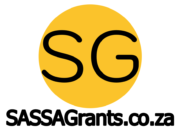Free Government Municipal Services For Poor Households – Water and Electricity
The South African government (via various municipalities) provides free, basic municipal services to underprivileged households so that all individuals may have an adequate way of life. The services include the basic necessities, such as sanitation, water, and electricity – a minimum and sufficient amount is provided to meet basic needs.
It’s important to note that only poor households will qualify for these basic services. Municipalities will determine which individuals qualify by screening all applications via a means test. The means test will then decide which households qualify for indigent status, thus qualifying for the free services.
Each municipality will determine their own categories of subsidiaries. Some municipalities allow households to qualify for 100% subsidiaries, while others for less (this is dependent on their own unique criteria.)
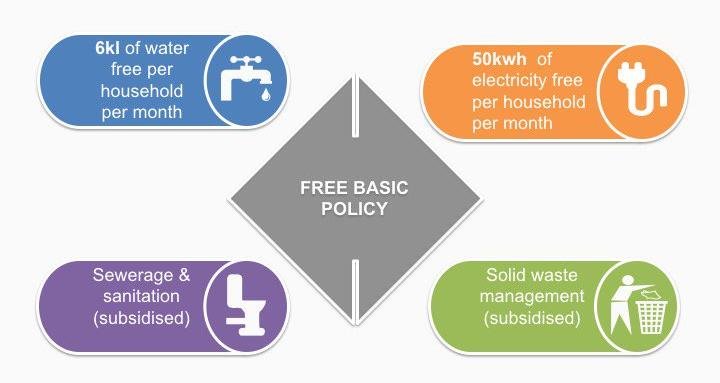
Since 1994, service delivery across the country has changed. Owing to the government announcing its intention to provide free basic services to poor people, millions have now gained access to these basic needs.
In 2013, (according to StatisticsSA):
- 89.9% of South Africans had access to piped water
- 85.4% had access to electricity
- 77.9% had access to better sanitation
Free basic water
The free basic water amount consists of 6 000 liters per household per month (this amount may differ depending on the municipality*.) This basic water amount is the standard and a sufficient amount to promote healthy living and is derived from international practices that encourage the use of 25 liters of water (per person) a day. As you can see, by using this method, it equates to 6 000 liters a month for a household consisting of 8 individuals (8 being the average number of people in South African households.)
*If you want to qualify for free water, it is important to check with your municipality what free basic water service they provide.
Should individuals use more than the monthly amount of free water, they will then need to pay for the difference (i.e. amount over and above the free supply.)
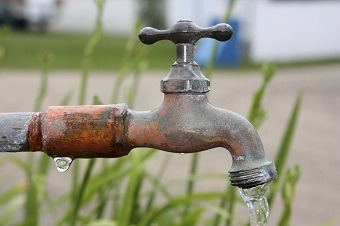
Free basic electricity
The free electricity amount is set at 50kWh per household per month. This amount is for a grid energy system (via the national electrification programme.) This electricity amount is determined to power items such as basic lighting, ironing, water heating (via a kettle), a small black and white television, and a radio.
Individuals who live in households with pre-paid electricity meters, will be able to see when the free electricity is finished and will then need to buy more at their own expense.
However, individuals who have conventional/ credit meters will not be able to see when they have finished their free units, as such, they will be charged for any additional electricity use at the end of the month.
For individuals who do not have access to grid electricity, the government/ municipality may provide them with non-grid electricity. If you are in need of this type of electricity, be sure to contact your municipality to enquire about the various alternative energy sources they provide.
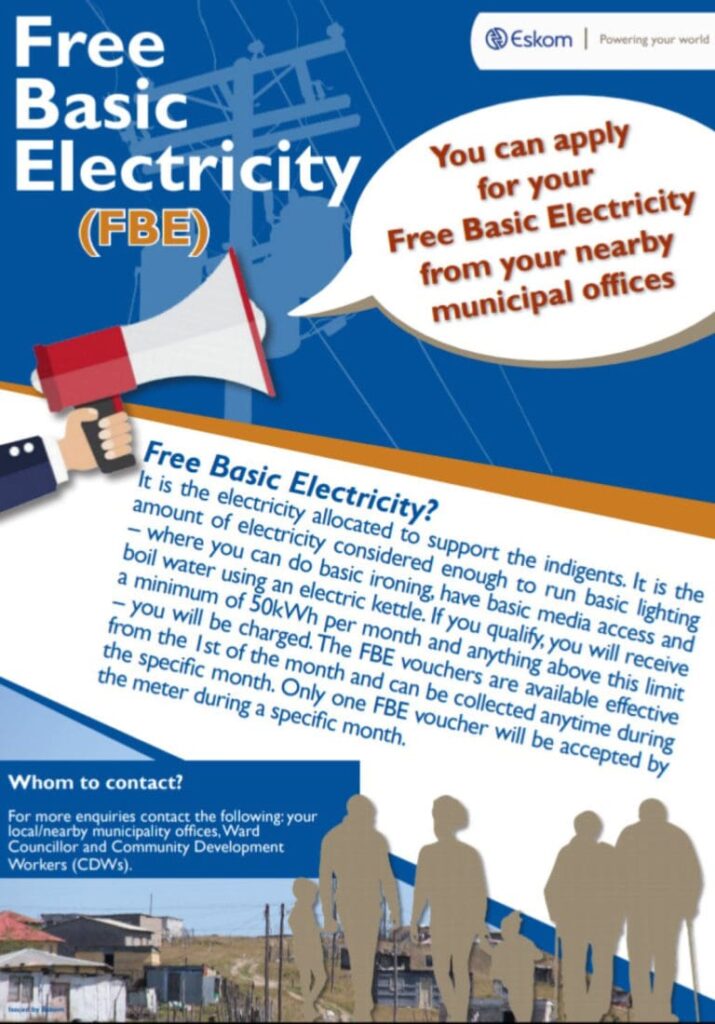
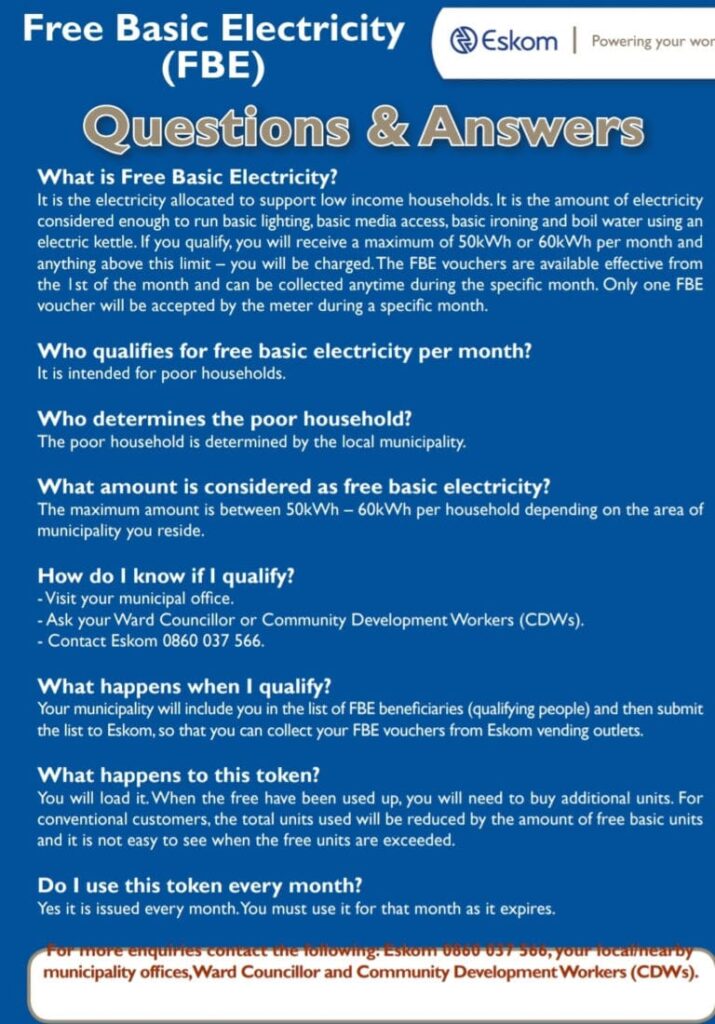
Free basic sewage and sanitation
Sewerage and sanitation, as well as solid waste management are provided to individuals up to R50 per month, or 100% subsidy to poor households.
How to claim Free Basic Electricity (FBE)
- Dial *130*269#
- Select the FBE prompt
- Select ‘NEW’
- Enter your electricity meter number
- Confirm that the number is correct
- Click Dismiss
- Next, an SMS will be sent to you
Please note that not all individuals qualify for FBE, and this may be subject to the type of tariff plan you are on. For more information regarding your tariff plan, be sure to contact your local municipality.
If your household is registered and qualifies, you can access the FBE token number through your mobile device by dialing *269*120# or *130*869#.
You can also ask for your FBE token number at your local vendor -please note, you are not obliged to buy electricity from the vendor to get your FBE.
For electricity and water connection to home/ business premises, contact your local municipality
Please note that for some areas, you may need to contact the national supplier of electricity (Eskom) to acquire your free electricity and water connection.
READ ABOUT: Types of grants
SRD R350 Grant Care Dependency Grant Child Support Grant Foster Child Grant Disability Grant Older Persons Grant Grant-In-Aid War Veterans Grant
Types of Grants How to Apply Status Check Payment Dates Jobs & Vacancies Updates & Blog Contact SASSA
QUERIES AND CONTACT
For any further queries, please contact SASSA directly:
Contact the SASSA Toll Free Call centre on: 0800 60 10 11
Contact the SASSA Head Office on: 012 400 2322
Email SASSA Head Office at: Grantsenquiries@sassa.gov.za
Contact details of SASSA offices across the country: SASSA contact details
